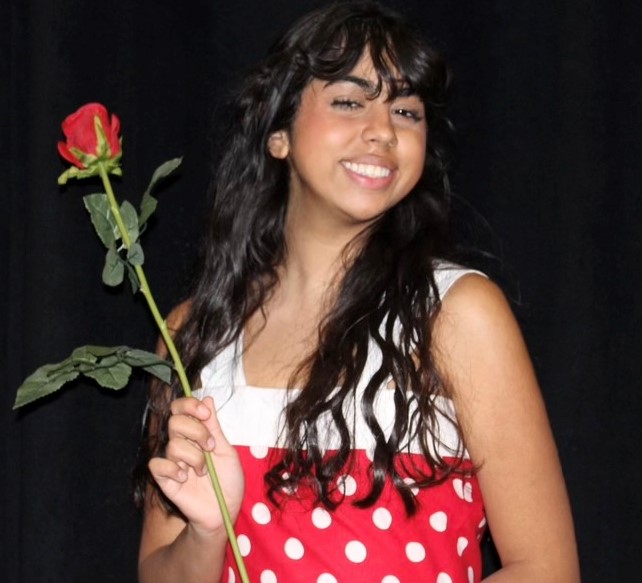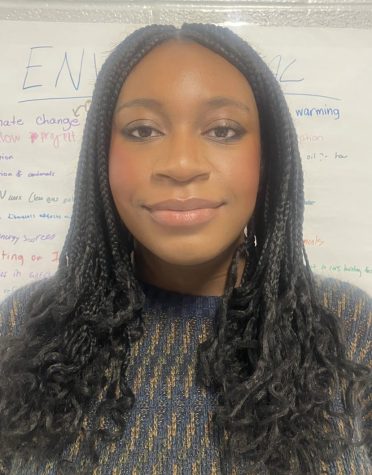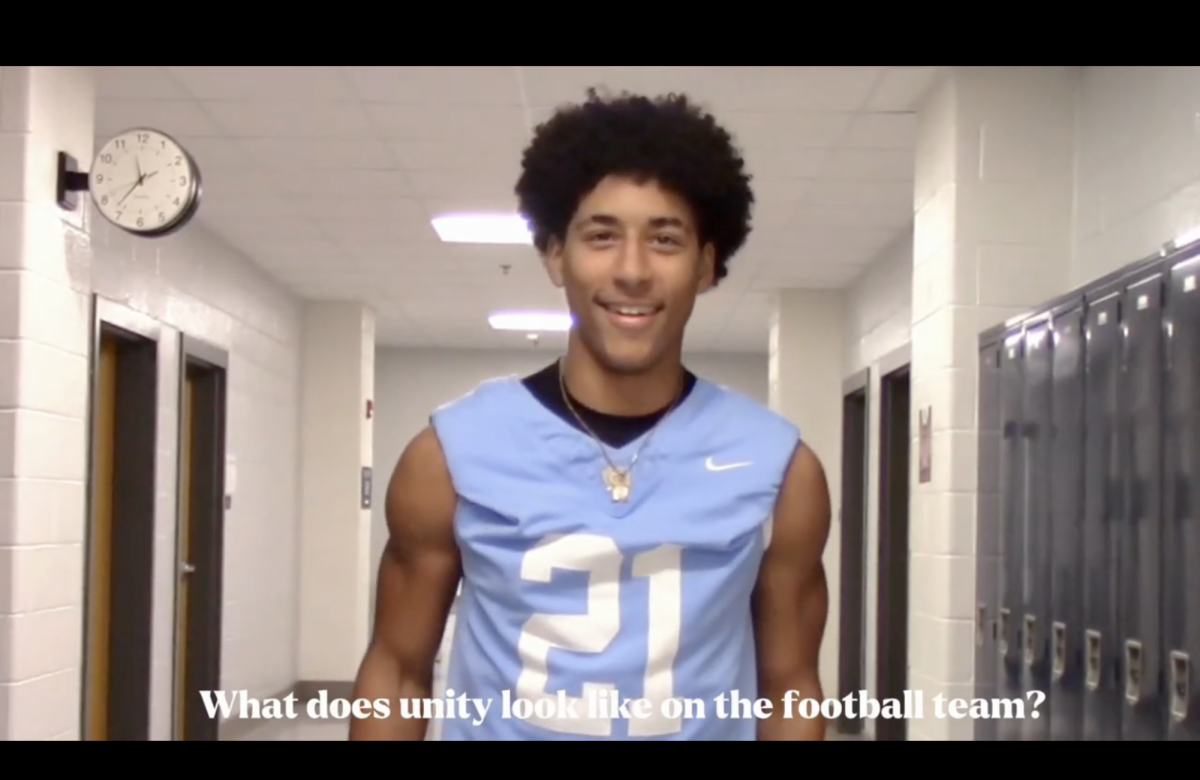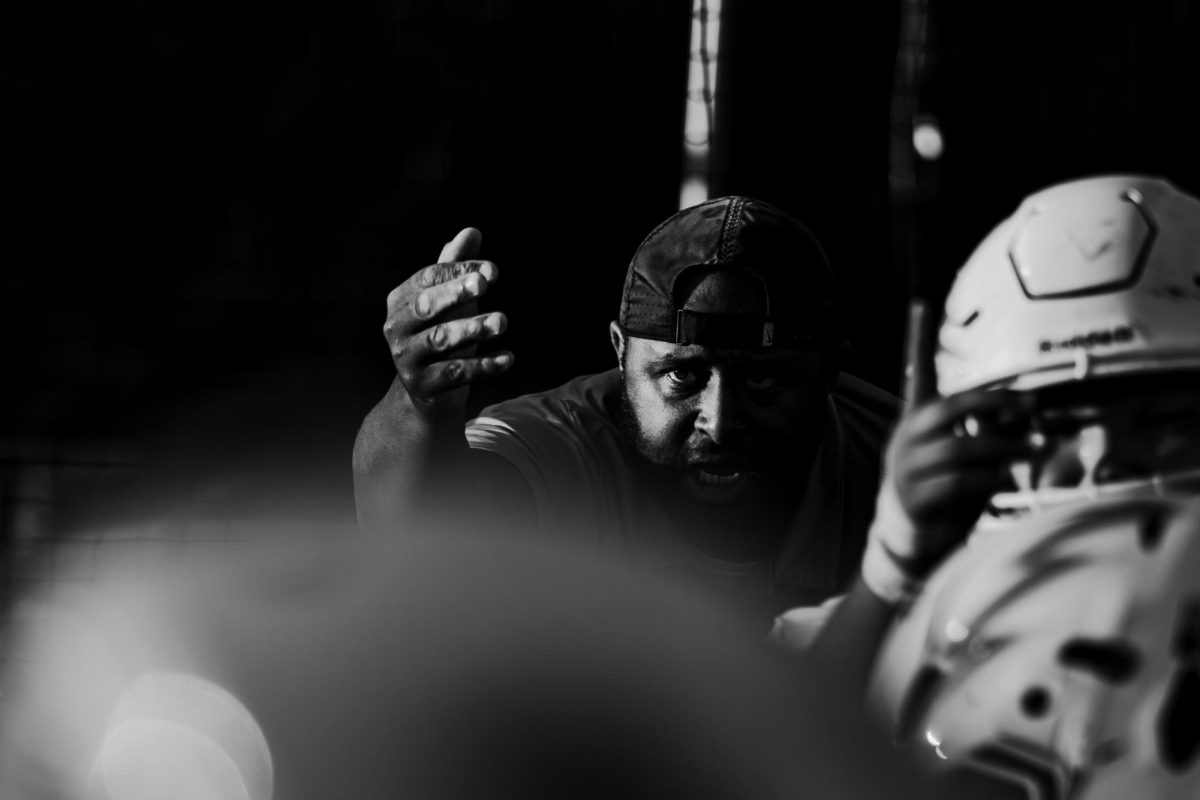“Bye Bye Birdie” actress Lily Selvaraj on why representation matters
Senior Lily Selvaraj poses in her Rosie costume during a dress rehearsal for “Bye Bye Birdie.”
March 29, 2023
“I like to say I was cheerleader number 37,” says senior Lily Selvaraj, recollecting her first musical stage role.
“It was in High School Musical, Jr. edition, performed at Mercer Middle School in 7th grade. It was a charity role,” Selvaraj laughs, as she recalls the sheer number of people who were cast as cheerleaders.
Gone are the days of cheering in the background for Selvaraj. In Lightridge’s spring production of the musical “Bye Bye Birdie,” she assumes the lead role of Rosie, a Hispanic secretary who finds herself fed up with the amount of music in her life. Selvaraj, unlike Rosie, has a love for all things melodic. However, both Selvaraj, a woman of both Latina and Indian heritage, and the character, Rosie, find themselves navigating their way through predominantly white spaces.
For Selvaraj, the weight of the role was on her shoulders before she even got it.
“Before the cast list came out, I was very stressed,” Selvaraj recalls. “Not even about me but just the idea of Rosie being played by a white person.”
Selvaraj’s desire wasn’t for the role, but for Rosie to be adequately represented.
“I just wanted her to be played by a person of color,” says Selvaraj.
“People feel like Rosie can be portrayed by anybody and as long as they do justice to the role, it’s fine,” Selvaraj says. “ But I think a big part of doing justice is casting it correctly.”
Her fears aren’t that far fetched. High school drama departments are notorious for putting on productions of musicals that require a diverse cast for their less than diverse theater population.
The musical, “Hairspray,” for example, is a popular high school production. The plot partially revolves around “Negro Days,” the one day of the week, in the world of the musical, when black people are allowed to dance on the Corny Collins Show. The issue, at least in many high school productions, is the “Negro Days” aren’t all that negro. Non-people of color play characters who, for the play to make sense narratively, need to be people of color.
Selvaraj looks visibly stressed when she discusses the topic of race in theatrical roles and goes on to mention the continuing struggle to affirm her place as an actor of color. She feels she is “ always fighting” for her spot.
In her process for being cast as Rosie, Selvaraj found similarities between her fight for the role, and the character’s struggle to have her voice be heard in the play’s setting of 1960s white suburbia.
”Rosie’s very confident. I love that about her,” Selvaraj says. “ She always has to fight for her place and everything, and I can relate to that a lot.”
Selvaraj says even outside of theater she has been in positions, both in leadership roles and social situations, where, like Rosie, she felt it was necessary to fight for her voice to be heard.
Despite the pressures of the role, Selvaraj enjoys the acting and rehearsal process. She mentions her efforts to translate her off-stage platonic chemistry with male lead, senior Brandon Foley, whose she’s been friends with since the 9th grade, into the on-stage romantic chemistry between their two characters.
“We’re really close friends, so it’s actually, super, super easy, ”Selvaraj reveals before she quickly clarifies her comment. “Obviously we’re not slow dancing around the school, so it’s just getting used to literally playing a couple.”
Even with the stress of usually finding herself being a POC in a white dominated space, Selvaraj thoroughly enjoys theater. However, she doesn’t see herself pursuing it seriously after high school. “Bye Bye Birdie” will probably be her last performance, so when the curtains close on the last night of the musical, they will also close on her acting career.
Although minor roles like cheerleader 37 are in the past for Selvaraj, the struggle for major roles has turned into a struggle to be adequately represented in her roles as lead, and in turn to portray underrepresented characters accurately.
“There’s always pressure in theater,” says Selvaraj. “Especially when you’re the only person of color. I can’t be a disappointment. I have to be amazing.”





